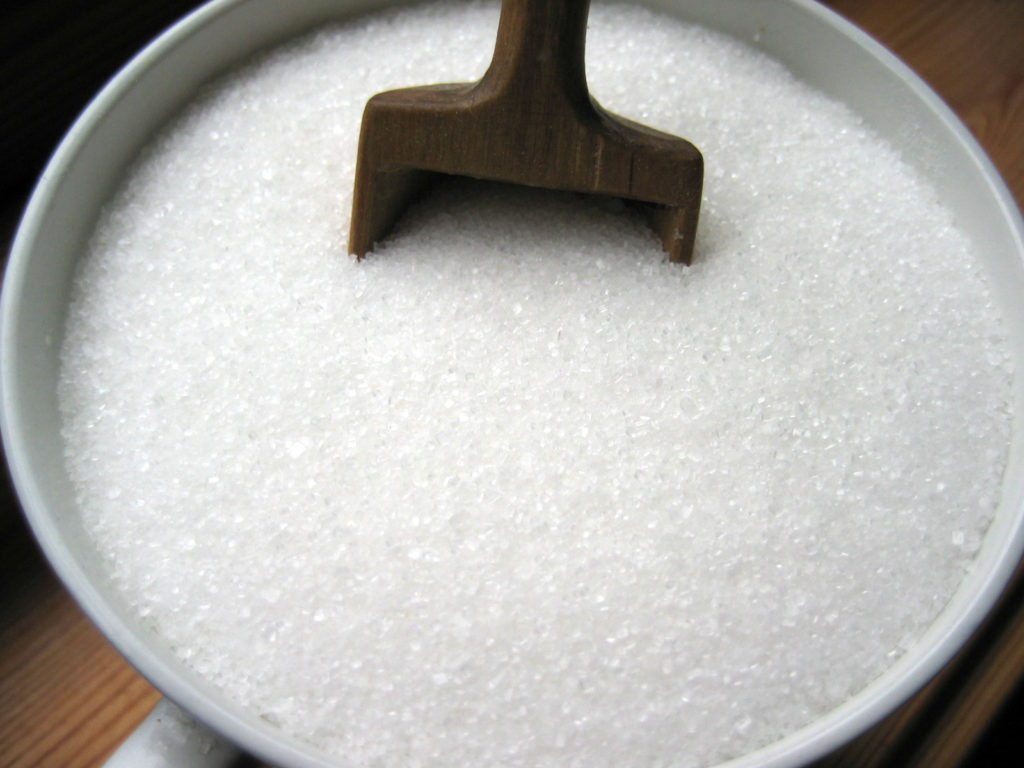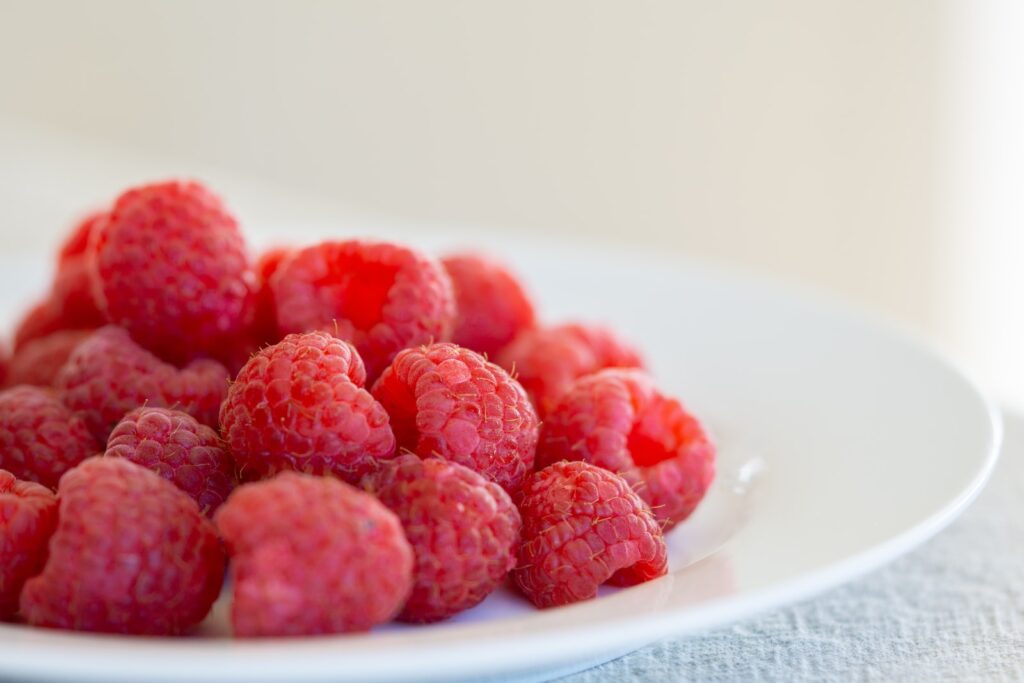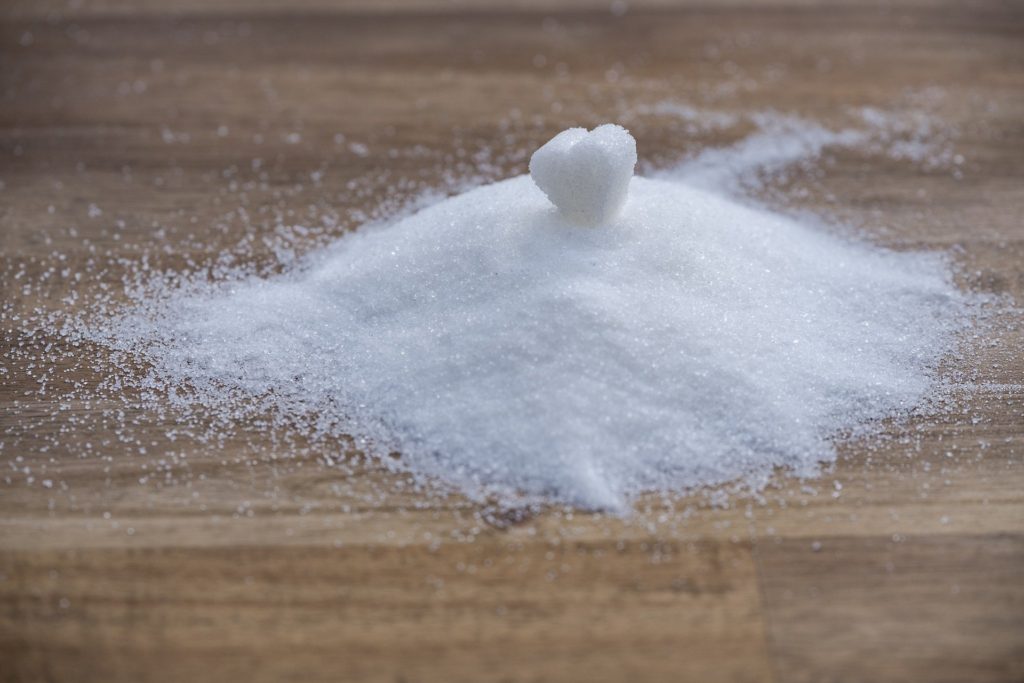Yes, most artificial sweeteners are ok to consume during a fast.
Artificial sweeteners like sucralose, aspartame, and saccharin have almost no calories, but a lot of sweetness.
They are useful for anyone trying to cut down on sugar intake or for those who need to follow a specific diet plan such as keto.
But, if you are an avid follower of IF or any other diet, you will be well aware of the fact that artificial sweeteners can pose various health risks.
In this article, I’ll discuss which artificial sweeteners are ok to consume during your intermittent fasting window, & which ones aren’t.
What Are Artificial Sweeteners?
Artificial sweeteners are zero-calorie replacements for other caloric sweeteners, like sugar. They’re helpful for people trying to lose weight or reduce their sugar intake because they taste similar to sugar, but without the carbs & calories that comes from sugar.
Most of the common artificial sweeteners are:
- Sucralose (Splenda)
- Saccharin (Sweet ‘N Low)
- Aspartame (Diet Sodas)
- Acesulfame K (Equal)

Are Artificial Sweeteners Ok on Intermittent Fasting?
Yes, artificial most artificial sweeteners are ok to consume during your intermittent fasting window. This is because most artificial sweeteners don’t have calories or raise your insulin, so they won’t kick you out of your fast.
Some people follow a special eating pattern, like intermittent fasting, for its health reasons.
If you are following a special eating pattern, such as IF, you might want to enjoy your favorite drinks, like coffee or tea, without getting kicked out of your fast.
In that case, you can consume zero-calorie sweeteners since they don’t raise your insulin & won’t kick you out of your fasted state.
And when you do break your fast & eat, artificial sweeteners are a great way to replace regular sugar and reduce your overall carbohydrate intake.
You can also use artificial sweeteners in your recipes to reduce the amount of sugar.
Or, you just add a little bit of artificial sweetener to your coffee or tea to enjoy a sweet beverage without the added calories.
Which Artificial Sweeteners Can You Not Consume During a Fast
During a fast, you can’t consume any caloric artificial sweeteners like maltitol, xylitol, sorbitol, or mannitol. This is because these sweeteners still have calories, so they would raise your insulin & kick you out of your fast.
But, if your goal is also to improve your gut health or to go through autophagy & improve your longevity, you should try to avoid consuming anything altogether.
This is because these sweeteners, even if they have zero calories, need to be metabolized or excreted some way.
For example, sugar alcohols, like maltitol, feed the bad bacteria in your gut.
So, if you fasted with the goal of improving your gut health, but then you consumed a sugar alcohol as a sweetener, you would worsen the benefits of the fast.
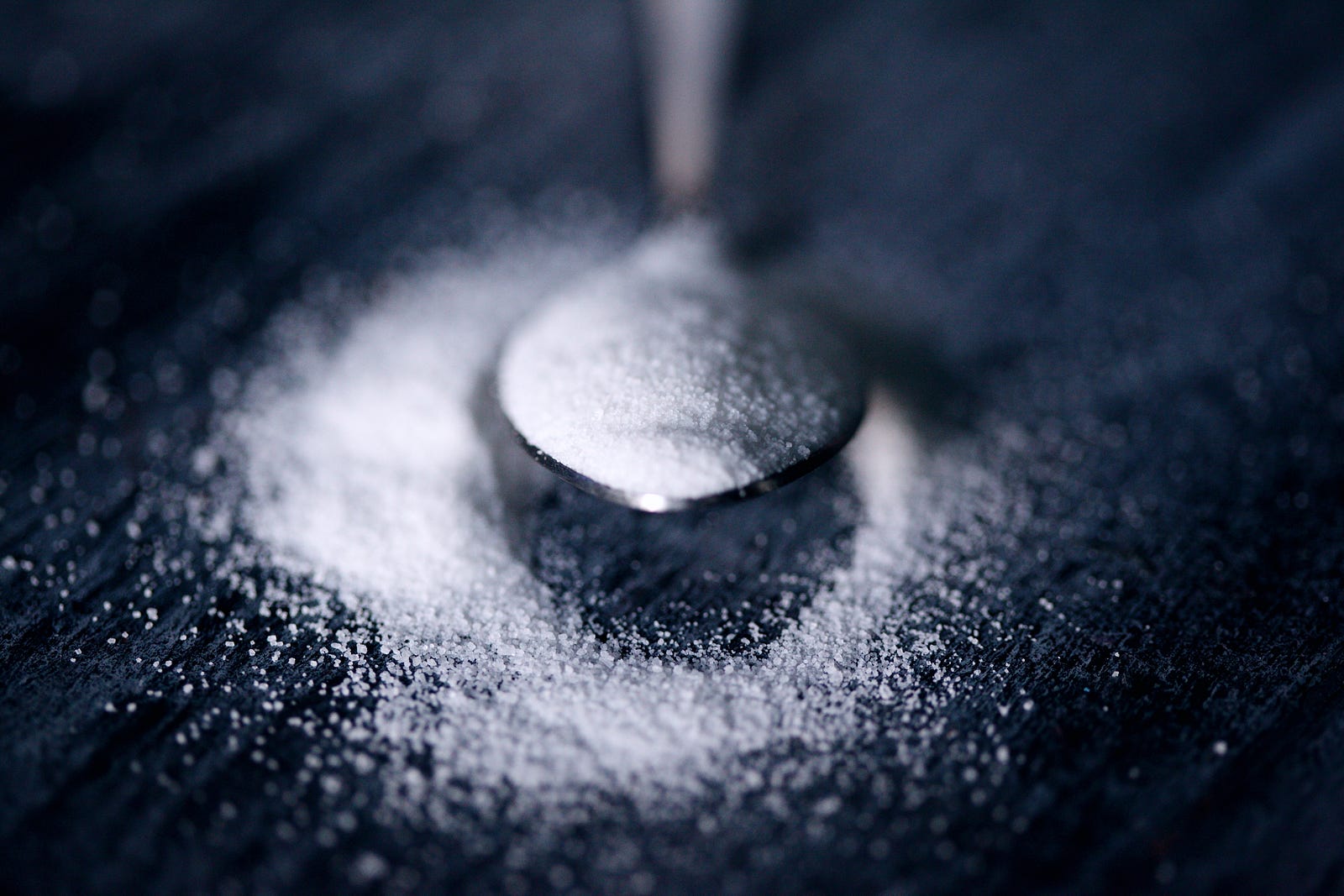
Are Artificial Sweeteners Dangerous?
Most artificial sweeteners, like Splenda or aspartame, are dangerous because they’re neurotoxic and can lead to certain brain diseases over time.
One study with around 3,000 people found that those who consumed artificial sweeteners on a regular basis increased their risk for stroke & dementia by 300%!
This happens because most of the common artificial sweeteners, like Splenda, Sweet ‘N Low, etc, cause oxidative stress to the brain & body.
In simple terms, this means that since artificial sweeteners are extremely artificial, & they can cause negative health effects like stroke & dementia.
So, you should try to avoid artificial sweeteners as much as possible for their dangerous effects.
However, there is good news for people who want to do IF and lose weight with the help of zero-calorie sweeteners — not all of them are bad.
Even though most zero-calorie sweeteners are toxic & bad for your health, some of them are actually safe to consume.
*Note: Some of these links are Amazon affiliate links which I earn a small commission from if you decide to buy from them.*
Which Zero-Calorie Sweeteners Are Safe to Consume?
Natural zero-calorie sweeteners, like stevia, monk fruit, & erythritol, are safe to consume. This is because they don’t cause many of the toxic side effects that are associated with the most common artificial sweeteners, like Splenda.
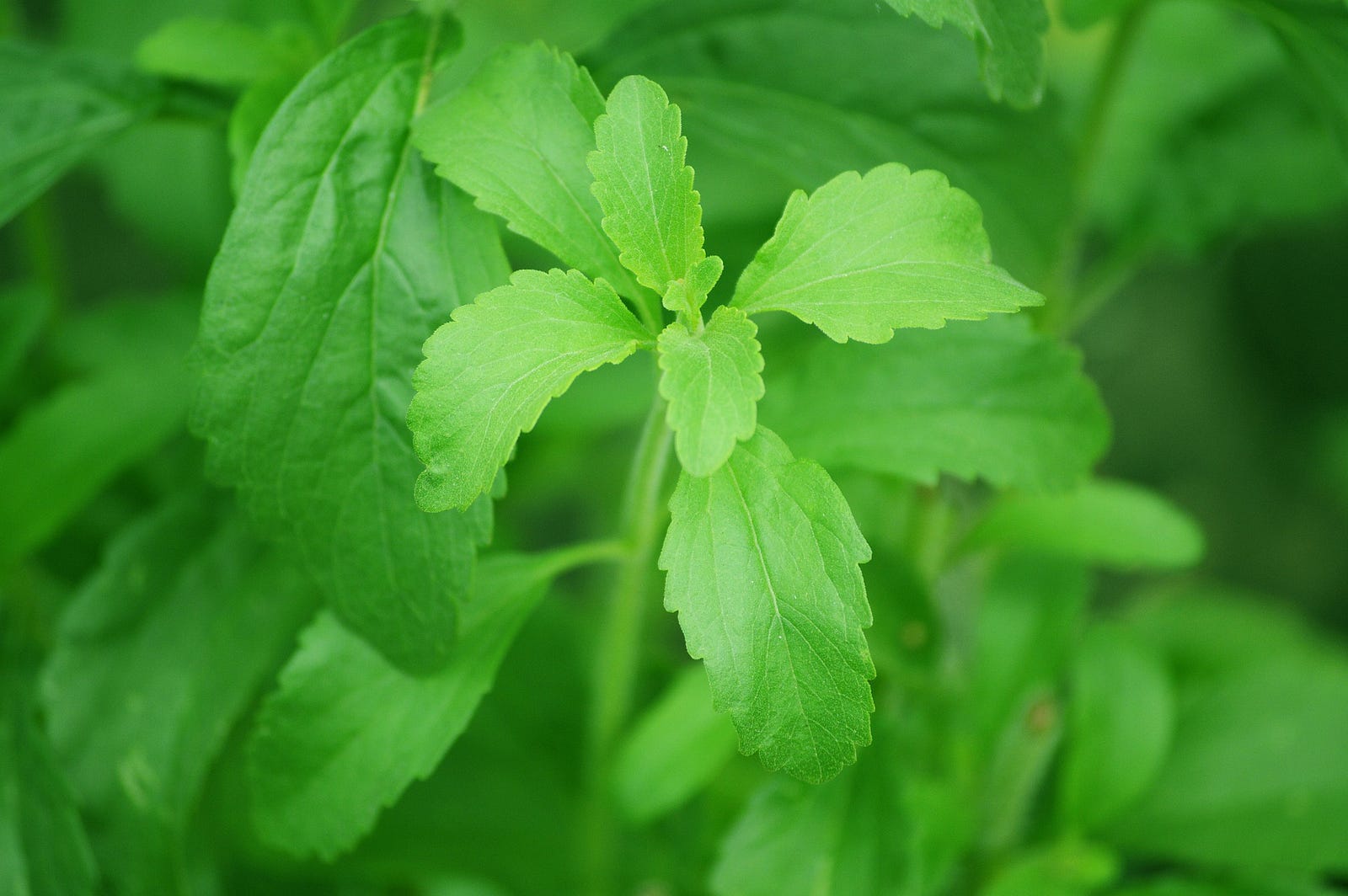
Stevia
Stevia is one of the most common zero-calorie sweeteners, but is actually natural.
Stevia comes from the leaves of the Stevia plant, which is native to South America.
And since stevia is so popular, it’s also one of the easiest natural zero-calorie sweeteners to find.
Stevia is also around 200x sweeter than sugar, so you only need to use a little bit of it at a time.
But, one issue with stevia is that most stevia brands mix other artificial sweeteners with the stevia extract so they can make it a 1:1 replacement with sugar.
Unfortunately, this would make the product less natural, which is what we’re trying to avoid.
However, some brands of stevia, like this one, are 100% stevia, which is what we’re looking for since they’re more natural.
They might say “pure extract” or “100% stevia” and are usually really small since they’re 200x sweeter than normal sugar.
Another to look out for with stevia is that has a small, metallic aftertaste, which can make your eating experience a little worse.
But, some stevia brands, like this one, have a reduced aftertaste, so they’re more palatable.
Erythritol
Erythritol is another natural zero-calorie sweetener, so it’s great for people who want to cut sugar out of their diet without getting the toxic effects that come from most artificial sweeteners.
Erythritol is around 75% as sweet as sugar, so you don’t need to do be super precise when using it unlike stevia.
And, even though erythritol has a chemical-sounding name, it’s actually natural and occurs in birch trees.
And since it’s a naturally occurring compound, it doesn’t cause the toxic effects that other artificial sweeteners do.
If you’re looking for something to replace sugar without the risk of toxicity, look out for erythritol at the grocery store or buy my favorite one here.

Monk Fruit
Monk fruit is a zero-calorie, natural sweetener that is great for people trying to cut out sugar from their diet since it tastes almost identical to sugar, but has zero-calories & no impact on insulin≥
Monk fruit sweetener is a naturally occurring sweetener that comes from the melon-like plant, Lo Han Gua.
Lo Han Gua is packed with fiber, vitamins, and minerals. And, its insides are really sweet & are extracted to make monk fruit sweetener.
Monk fruit sweetener, similarly to stevia, is around 200x sweeter than sugar, so you don’t need to use too much of it at once if you’re using the raw extract.
You can find monk fruit at some grocery stores.
But, if you prefer shopping online, you can buy my favorite monk fruit brand here.
It’s a 1:1 replacement for sugar since it’s blended with erythritol, so it tastes & measures just like sugar.
Conclusion
In conclusion, since most artificial sweeteners have zero-calories, they won’t kick you out of your fast & can be used during your intermittent fasting window.
But, since most of the common artificial sweeteners, like aspartame & Splenda, cause neurotoxic effects, it’s best to avoid them.
Instead, use natural zero-calorie sweeteners, like stevia or monk fruit, which still taste good, but don’t cause the harmful effects that most artificial sweeteners cause.
If you want to learn how I lost 40 pounds & improved my metabolic health with intermittent fasting & keto, you can read my article here where I share how I did it & how you can too.
- Can You Still Lose Weight If You Aren’t in Ketosis? - February 8, 2023
- Can the Keto Diet Help With Depression? - February 8, 2023
- Why Does Processed Food Make You Fat? - January 2, 2023

